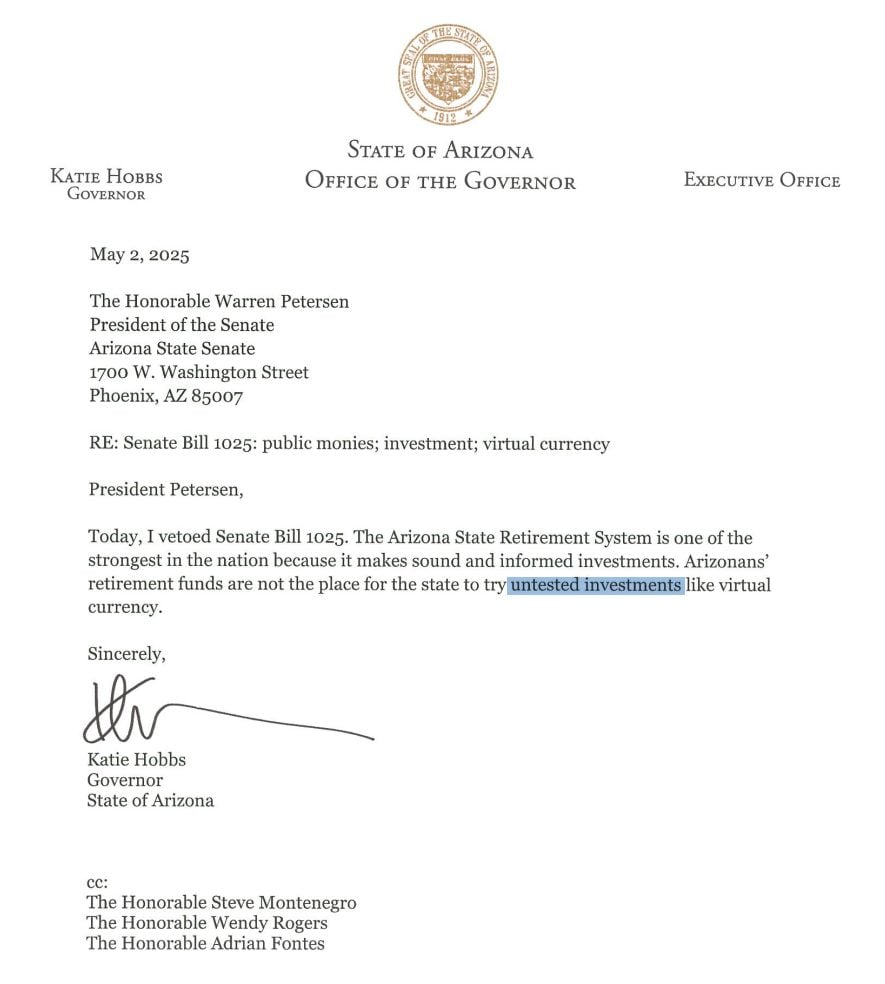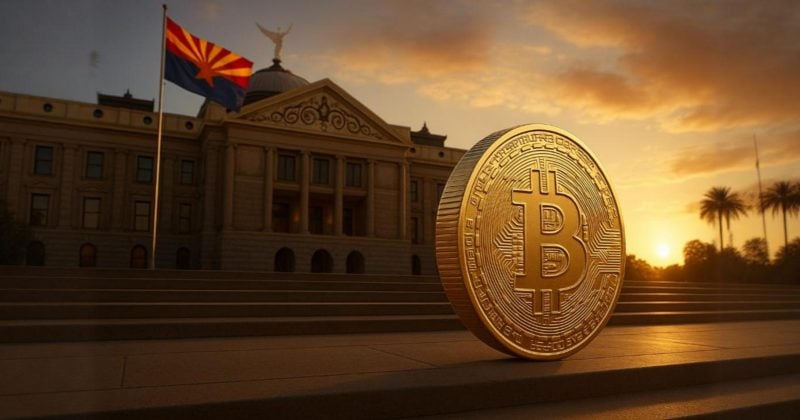Key Takeaways
- Arizona Governor Katie Hobbs vetoed a bill that would allow Bitcoin in state reserves.
- A related bill, SB1373, could still permit limited investment in digital assets in Arizona.
Share this article
Arizona will not be adding Bitcoin to its list of official state investments — at least not under Democratic Governor Katie Hobbs.
In a veto issued late Friday, Hobbs rejected Senate Bill 1025, also known as SB1025 or “Arizona Strategic Bitcoin Reserve Act,” proposed legislation that would have allowed the state to invest in Bitcoin and other digital assets.
The bill, co-sponsored by Wendy Rogers and Jeff Weninger, would have permitted state officials to invest up to 10% of the state treasury and pension assets in digital assets like Bitcoin. Had it become law, Arizona would have been the first state in the nation to adopt such a policy.
In her veto message, Hobbs stated that Arizonans’ retirement system is strong because it sticks to proven investment strategies. She believes it’s inappropriate to expose the state’s retirement funds to untested investments like digital assets.


While the veto is a setback for crypto advocates, it’s hardly unexpected given the governor’s earlier threat to block all legislation over unresolved disability funding.
On Friday, Hobbs also issued a string of other rejections. She has now vetoed 75 bills in 2025, surpassing the 73 vetoes she issued during all of 2024. Her record remains the 143 bills she blocked in 2023, the most by any governor in Arizona history.
Arizona lawmakers on Monday approved two bills, SB1025 and SB1373, the latter proposing the creation of a Digital Assets Strategic Reserve Fund, which is now awaiting the Governor’s decision. However, Hobbs’ track record suggests the bill may be headed for the same fate as previous measures.
Arizona joins other states where comparable initiatives have failed to advance, including Oklahoma, Montana, South Dakota, and Wyoming.
However, North Carolina’s House recently passed the Digital Assets Investment Act on April 30, allowing its state treasurer to invest up to 5% of certain funds in approved digital assets. The bill is now under Senate consideration.
The state-level initiatives align with federal efforts, as President Donald Trump signed an executive order in March proposing a “Strategic Bitcoin Reserve” and a “Digital Asset Stockpile.”
Supporters of the digital reserve plan argue that Arizona is missing a chance to lead in the fast-moving financial sector. But for now, the state’s official stance is clear: Bitcoin won’t be part of its balance sheet.
Share this article

